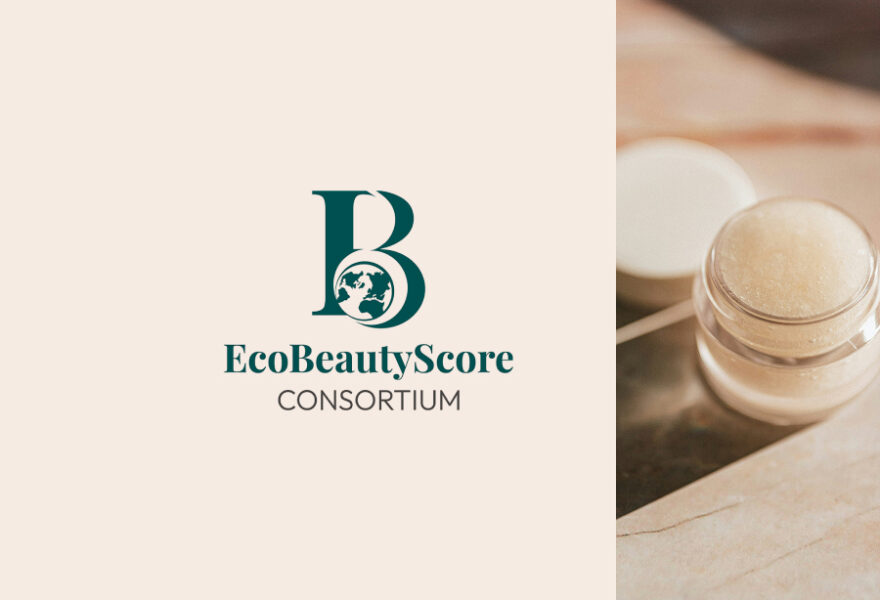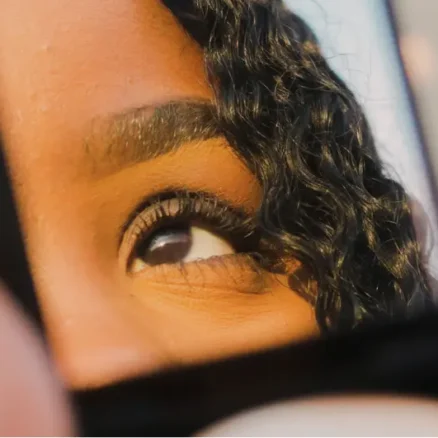In brief:
- First industry-wide environmental scoring system developed for cosmetics through collaboration with over 70 global manufacturers and trade associations
- More than two-thirds¹ of consumers across the four markets studied, say the EcoBeautyScore label builds trust and that they intend to consider EcoBeautyScore when purchasing products
- Science-based, independently reviewed and aligned with EU’s environmental footprint methodology, covering 16 planetary impacts across the full product lifecycle
- EcoBeautyScore simplifies the complex, enabling brands to understand, credibly communicate and reduce their products’ environmental impact
TUESDAY, 15th JULY, 2025: EcoBeautyScore, the first global, science-based environmental scoring system for cosmetics and personal care products, officially launches today across Europe. Pioneering beauty brands, including Eucerin, Garnier, L’Oréal Paris, Neutrogena, Nivea, Schauma and others have started to publish scores in select markets across Europe and UK.
Developed over three years by the not-for-profit EcoBeautyScore Association, in collaboration with over 70 cosmetics and personal care companies and associations, the scoring system offers brands and retailers a clear, transparent and consistent way to measure and communicate the environmental footprint of beauty products. Rooted in the EU’s Product Environmental Footprint (PEF) methodology, EcoBeautyScore rates products from A to E according to their impact on land, water and air over the full lifecycle of the product.
It’s projected that consumers will spend more than $150 billion on beauty and personal care products in Europe in 2025, with demand for more sustainable options on the rise². However, half of European consumers are sceptical of brands’ sustainability claims, suspecting they don’t accurately reflect the real environmental impact of products³.
It is against this backdrop that the EcoBeautyScore offers a timely and practical solution, translating complexity into a scientifically robust, yet accessible scoring system. The rigorous measurement process evaluates a product’s impact on the environment across its entire lifecycle, analysing everything from ingredient sourcing and packaging materials to how a product is used and disposed of by the consumer.
The EcoBeautyScore methodology and platform have been reviewed and verified by external experts, and brands using the scoring system will be regularly audited and certified by an independent third-party. Consumer demand for this kind of transparency is already strong. In a global study⁴ of more than 9,000 consumers across China, the US, France and Brazil, more than two-thirds say the EcoBeautyScore label builds trust, and the majority intend to take the EBS score into consideration for purchases.
Jean-Baptiste Massignon, Managing Director of the EcoBeautyScore Association commented: “EcoBeautyScore gives the beauty industry the transparency tool it has long been missing. For the first time, brands can communicate their environmental impact in a way that is science-based, consistent and easy for consumers to understand. Through a simple-to-use scoring platform, companies have access to a wealth of data about the environmental hotspots of their products, making it accessible for brands of all sizes, no matter their sustainability expertise.
“It’s encouraging to see pioneering companies begin publishing their scores, it marks an important milestone of collective openness and accountability across the sector. We know this won’t happen overnight, but this is how progress starts: with a shared framework, honest data and a commitment to informing better choices for the planet.”
After years of development and testing, the EcoBeautyScore system is now live, starting with four product categories: shampoo, conditioner, body wash and face care products. It’s open to all cosmetics and personal care manufacturers, with early adopters already publishing scores and more expected in the coming months. The system is free to trial and comes with onboarding support for brands of all sizes. Launching first in Europe, it will gradually expand worldwide and cover the full range of beauty products.
Laurent Gilbert, Scientific Director, EcoBeautyScore, commented: “Calculating the environmental impact of a beauty product is an inherently complex process that has traditionally required expert analysis. What we’ve done with EcoBeautyScore is distil that complexity into a scientifically robust, yet accessible scoring platform.
“Grounded in the methodology recognised by the European Commission as the most effective to measure environmental footprint, it evaluates a product’s impact across 16 dimensions, including carbon emissions, water usage and resource depletion. This level of detail gives brands and retailers a clear understanding of areas for improvement, while providing consumers with a simple, transparent score to guide more sustainable choices. It is both technically rigorous and easy to understand, and that combination is what makes it a powerful tool for driving progress in the beauty industry.”
Beauty brands and manufacturers interested in joining the movement toward greater transparency and sustainability can access a free trial of the EcoBeautyScore system now, here. To learn more or begin publishing scores, visit www.ecobeautyscore.com.
NOTES TO EDITORS
About the EcoBeautyScore Association
The EcoBeautyScore Association is a not-for-profit organization developing a standardized, science-based environmental impact scoring system for cosmetic and personal care products. Its aim is to help consumers make more informed choices through transparent, easy-to-understand product scores. The scoring platform also enables brands to measure, monitor, and improve the environmental footprint of their products, encouraging ecodesign and more sustainable practices. The Association is supported by independent experts in environmental science, law, technology, and consumer behaviour.
Learn more: https://www.ecobeautyscore.com
Members, as of May 2025 include:
Amorepacific, Anjac, Beiersdorf, Cartier Parfums, CASIC, Chanel, Colgate-Palmolive, Cosmetica Italia, Cosmetics Europe, Coty, CTPA, Douglas, Henkel, Hermès, Himalaya, IKW, Intercos Group, ISDIN, Kao, Kenvue, Kering, Kneipp, L’Occitane, L’Oréal, Louis Widmer, LVMH, Mibelle Group, Naos, NATRUE, NCV, NuSkin, Nuxe, PACDI, Paragon Nordic, Puig, Shiseido, Sisley, The Polish Union of Cosmetics Industry, Walgreens Boots, Wella.
Brands which have published scores so far include:
Eucerin (Beiersdorf), Garnier and L’Oréal Paris (L’Oréal), Neutrogena (Kenvue), Nivea Q10 (Beiersdorf) and Schauma (Henkel).
Sources
1, 4 Ipsos study, Assessing Consumer Interest Best Design And Narrative EcoBeautyScore – 9,000 Adults in China, the US, France, Brazil, March 2023
2 Statista data, Beauty & Personal Care – Europe Market Insights, 2025
3 Euroconsumer survey, Fighting greenwashing: do it now and do it right, 2023
Verified by: E&H (Ecocert group), compliance with PEF methodology and ISO norms 14020/14025
Learn more about our methodology here:
https://www.ecobeautyscore.com/app/uploads/2025/07/EBS-Simplified-Methodology_FOR-USE-BY-BRANDS.pdf
Media enquiries:
Maya Saujani / Sarah Johns / Helen Gowers for EcoBeautyScore
EcoBeautyScore@wearehollr.com
Partners:
- Ecocert Group: https://www.ecocert.com/en/home
- EcoInvent: https://ecoinvent.org/
- Ipsos: https://www.ipsos.com/en
- Mayer Brown: https://www.mayerbrown.com/en
- Pilario: https://www.pilario.com/
- Quantis: https://quantis.com/
- SPICE: www.open-spice.com



